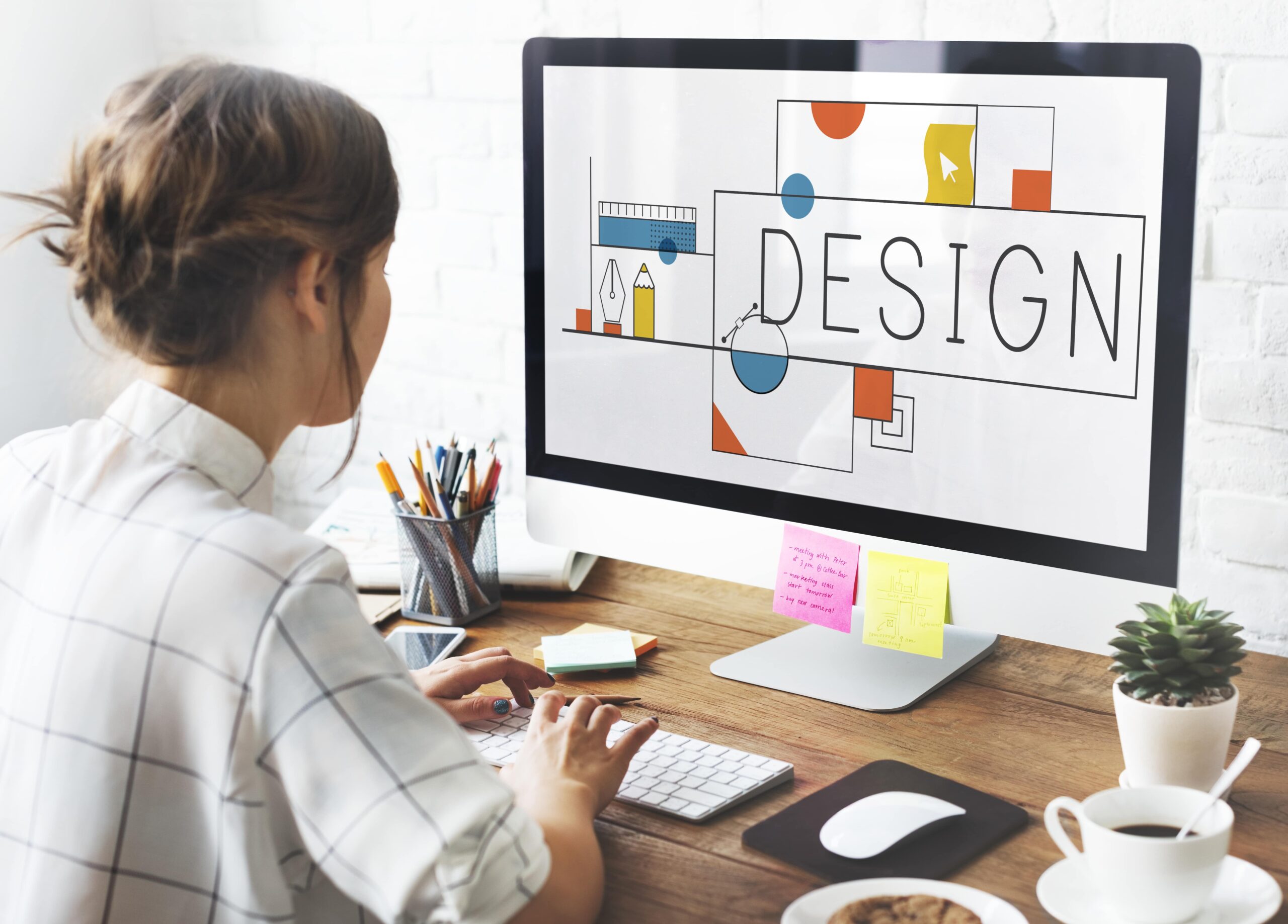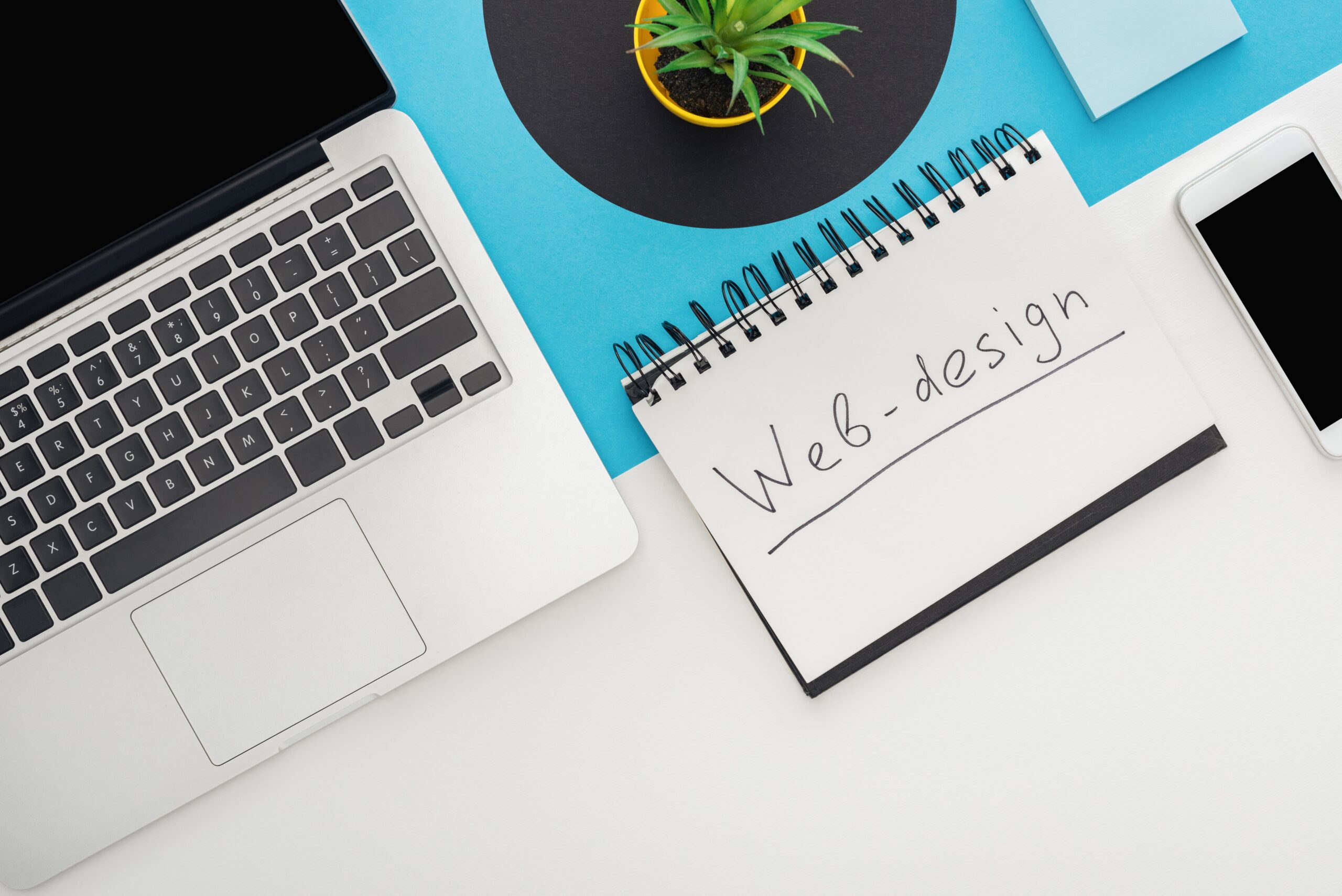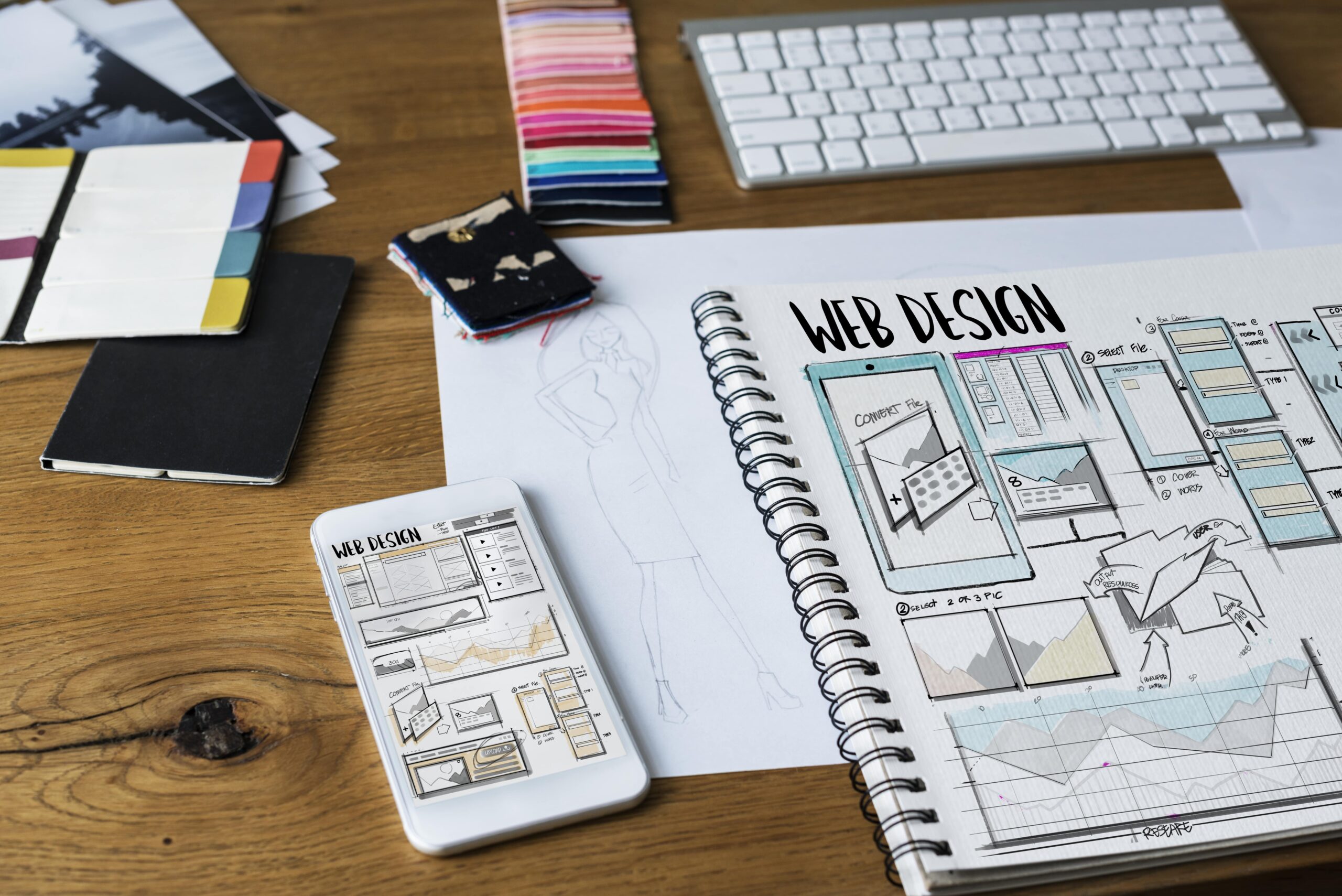March 25, 2025

Searching for a website designer in your local area offers many advantages over hiring someone remotely. Local designers understand your market, can meet in person, and often have connections with other local businesses. This regional knowledge can be invaluable when creating a website that resonates with your target audience.
When you work with a website designer near you, communication becomes easier and more effective. Face-to-face meetings allow for clearer discussions about your vision and goals. You can view design concepts together and provide immediate feedback. This personal touch often leads to better results and a website that truly represents your brand.
Local website designers understand the unique aspects of your community and market. They know what appeals to local customers and which design elements will resonate most effectively. This insight helps create websites that connect with your specific audience.
A designer from your area will be familiar with your competitors too. They can help you stand out while still meeting local market expectations. This balance is crucial for success. When you search for a “website designer near me,” you are not just looking for technical help. You are finding a partner who understands your business.
Finding the right website designer in your area requires research and careful evaluation. Start by searching online for “website designer near me” and reviewing local business directories. Make a list of potential designers and examine their portfolios closely.
Ask for recommendations from other business owners you trust. Personal referrals often lead to the best matches. Local business networking groups can be excellent sources for finding talented web designers. Many communities have creative professional organizations where skilled designers participate and showcase their work.
A designer’s portfolio reveals their style, skills, and experience. Look for websites they’ve created for businesses similar to yours. Pay attention to design quality, functionality, and overall user experience. Each site should be visually appealing while remaining easy to navigate.
Notice how they handle different industries and business sizes. Versatility indicates adaptability to your specific needs.
When reviewing portfolios, check if the websites look current or outdated. Web design trends change rapidly, and you want someone whose work feels modern and fresh. The best website designers maintain portfolios that demonstrate both technical skill and creative vision.
Technical skills are fundamental when choosing a website designer. Look for proficiency in HTML, CSS, JavaScript, and content management systems like WordPress. These core competencies ensure that you build your site on a solid foundation with clean, efficient code.
Beyond technical abilities, your website designer should understand user experience (UX) principles. This knowledge helps create websites that are not just attractive but also intuitive and easy to use. A designer who prioritizes the user’s needs will create a site that converts visitors into customers more effectively.
Strong visual design skills are essential for creating an appealing website. Your designer should understand color theory, typography, and layout principles. These elements work together to create a cohesive, professional appearance that builds trust with visitors.
Look for a designer who asks thoughtful questions about your brand identity. They should be interested in your logo, color scheme, and overall visual style. The best website designers translate your brand personality into digital form through thoughtful design choices. When you find a designer who truly grasps your visual identity, the resulting website will feel authentic to your business.
Website designers must regularly overcome technical challenges and find creative solutions. The best designers approach problems methodically and persist until they find effective solutions. This resilience ensures your project stays on track even when complications arise.
A good designer stays current with emerging technologies and best practices. The web evolves constantly, and your designer should evolve with it. Ask potential designers how they keep their skills updated. Those who invest in ongoing education will deliver more current, effective websites. Continuous learning separates exceptional designers from merely adequate ones.
Working with a local website designer creates accountability that’s often missing with remote providers. When your designer lives and works in your community, their professional reputation depends on your satisfaction. This personal connection typically results in higher quality work and better service.
Local designers can respond quickly when you need changes or updates. Instead of waiting for responses across time zones, you can often get same-day attention to urgent matters. This responsiveness becomes particularly valuable when your website faces technical issues or needs immediate updates.
The website designer-client relationship shouldn’t end when your site launches. Websites require ongoing maintenance and periodic updates to remain effective. Working with someone locally makes this long-term relationship more sustainable and productive.
Over time, your local designer will develop a deeper understanding of your business goals and challenges. This insight enables them to suggest improvements and keep your site aligned with your evolving needs. The value of this ongoing partnership often exceeds the initial website development. A designer who grows with your business becomes an invaluable resource for your digital success.
When you hire a website designer near you, you strengthen your local economy. Your investment stays in the community and helps another local business thrive. This creates a positive cycle of local support and economic health.
Local business relationships often lead to networking opportunities and referrals. Your website designer likely works with other businesses that could become partners, customers, or resources for you. These connections represent an added benefit beyond the website itself. The professional network you gain access to can become as valuable as the design services you receive.
A professional website design process typically begins with discovery. Your designer should take time to understand your business, goals, and target audience. This foundation ensures the resulting website serves your specific needs rather than following generic templates.
After discovery comes planning and design concepts. Your designer will create mockups showing how your site might look and function. This stage involves collaboration and feedback as you refine the vision together. The best designers welcome your input while guiding you with their expertise.
Website design projects typically take several weeks to complete, depending on complexity. A professional designer will provide a realistic timeline and keep you informed about progress. Be wary of promises that seem too good to be true regarding completion speed.
Effective project management includes regular updates and clear communication. Your designer should establish expectations about how and when you’ll receive progress reports. Good designers maintain organized systems for tracking tasks and milestones. This structure keeps your project moving forward efficiently without requiring constant oversight from you.
Clear communication forms the foundation of successful design projects. Your local website designer should explain technical concepts in terms you understand. They should listen carefully to your needs and confirm understanding before proceeding with work.
Expect regular check-ins and opportunities to provide feedback throughout the process. A good designer values your input while offering professional guidance. This balance ensures you remain involved without feeling overwhelmed by decisions. Collaborative relationships produce the best results because they combine your business knowledge with the designer’s technical expertise.
Before hiring a website designer, ask about their specific experience with businesses like yours. Industry experience means they’ll understand your unique needs and challenges. While versatile designers can work across sectors, relevant experience often leads to more efficient projects.
Discuss their approach to mobile responsiveness and search engine optimization. These elements are critical for website success today. A qualified designer should explain how they build sites that perform well on all devices and rank effectively in search results.
Ask potential designers to explain their pricing structure clearly. Some charge hourly rates while others offer package pricing for complete projects. Understanding the financial terms prevents unpleasant surprises later in the process.
Request details about what their services include. Will they provide content writing, photography, or ongoing maintenance? Are there additional costs for certain features? The most professional website designers provide transparent, detailed proposals that outline exactly what you’ll receive for your investment.
Discuss who will own the website and its content after completion. Professional designers transfer full ownership to you, but policies vary. You should also confirm you’ll have access to update content yourself if desired.
Ask about the hosting arrangement and domain registration. Some designers include hosting services while others expect you to arrange this separately. Understanding these technical details prevents confusion later. The best website designers provide clear documentation about ownership, access rights, and technical requirements before beginning work.
Be cautious of designers who promise unrealistic results. If someone guarantees specific search rankings or makes extravagant claims about traffic increases, consider it a warning sign. Responsible professionals set realistic expectations while working diligently toward your goals.
Watch out for vague proposals or contracts lacking specific deliverables. Professional website designers provide detailed documentation of what they’ll create for you. This clarity protects both parties and ensures shared understanding of the project scope.


If a designer responds slowly during the inquiry phase, this pattern will likely continue or worsen after you’ve paid. Professional courtesy includes timely responses to questions and concerns. Evaluate their communication style during initial interactions as an indicator of future working relations.
Pay attention to how well they listen and understand your needs. If a designer seems more interested in selling their services than learning about your business, consider it a warning sign. The best website designers begin by listening carefully to your goals before making recommendations. They ask thoughtful questions that demonstrate genuine interest in your success.
Examine when the designer last updated their portfolio. Web designers rapidly evolve their techniques, and yesterday’s cutting-edge methods may become outdated today. If their most recent work is several years old, they might not keep up with current best practices.
Be wary of designers with very limited examples of past work. While everyone starts somewhere, your business website probably shouldn’t be someone’s learning project. Look for evidence of consistent quality across multiple projects. Experience brings wisdom that helps anticipate and prevent problems throughout the design process.
Most website designers use one of several common pricing models. Some charge hourly rates ranging from $75 to $200 per hour, depending on experience and location. Others offer package pricing for complete websites, typically ranging from $1,000 to $10,000 or more for complex projects.
Some designers use value-based pricing that reflects the business impact of your website rather than just the hours worked. This approach considers factors like your potential revenue increase from an effective site. Understanding these different models helps you evaluate proposals more effectively.
Website complexity significantly impacts pricing. Simple informational sites with few pages cost less than e-commerce platforms or custom web applications. Additional features like membership areas, booking systems, or custom databases increase complexity and cost.
Design customization level also affects price. Template-based designs cost less than fully custom creations. While templates offer cost savings, custom designs provide uniqueness that may better serve your brand. The best website designers help you find the right balance between customization and budget constraints.
The cheapest website option rarely provides the best long-term value. Professional design may cost more initially but typically delivers better results through higher conversion rates and easier maintenance. Consider the website an investment rather than just an expense.
Professional website designers create sites that grow with your business. They build flexible frameworks that accommodate future expansion without requiring complete redesigns. This scalability provides significant long-term value beyond the initial design. When evaluating costs, consider both immediate needs and future growth requirements.
The website design process typically follows established phases. It begins with discovery and planning, moves through design and development, and concludes with testing and launch. Understanding this process helps you participate effectively as a client.
The discovery phase involves learning about your business, competitors, and goals. This information forms the foundation for all design decisions. Skipping or rushing this phase often leads to websites that look good but fail to achieve business objectives.
After discovery, your website designer will create wireframes showing the basic structure and layout. These simplified diagrams help establish user pathways and content organization before adding visual design elements. Wireframing prevents costly changes later in the process.
Design mockups come next, showing how the finished site will look. This phase involves selecting colors, typography, imagery, and other visual elements. After design approval, development begins – transforming designs into functioning web pages. The final phases include testing across different devices and browsers, then launching your site to the public.
Professional website design doesn’t end at launch. The post-launch phase includes monitoring for issues, making minor adjustments, and collecting initial user feedback. Your designer should remain available to address any problems that arise as real users interact with the site.
Many website designers offer maintenance packages for ongoing updates and support. These services typically include security updates, content changes, and technical troubleshooting. Continuing this relationship keeps your site running smoothly while allowing for gradual improvements based on performance data.
Most website designers work with established content management systems (CMS) like WordPress, Shopify, or Squarespace. These platforms provide reliable foundations for creating custom websites without building everything from scratch. Understanding which platform your designer recommends helps you evaluate their approach.
WordPress powers nearly 40% of all websites and offers remarkable flexibility for almost any business need. E-commerce businesses might benefit from Shopify’s specialized tools. Simpler business sites might work well with Squarespace or Wix. The best website designers choose platforms based on your specific requirements rather than their personal preferences.
Template-based websites offer cost and time advantages but may look similar to other sites using the same templates. Custom development provides uniqueness but requires larger budgets and longer timelines. Many projects use a hybrid approach – starting with templates but adding custom elements.
Discuss these options with potential designers to understand their recommendations for your situation. The right choice depends on your budget, timeline, and how important unique design is to your brand. Professional website designers explain these tradeoffs clearly to help you make informed decisions about your project approach.
Modern website design must prioritize mobile users. More than half of all web traffic now comes from smartphones and tablets. Your website designer should create responsive designs that adapt seamlessly to different screen sizes.
User experience (UX) design focuses on making websites intuitive and easy to navigate. This discipline uses research-based principles to guide visitors toward desired actions. Professional website designers incorporate UX best practices throughout the design process. The result is a website that not only looks attractive but also functions effectively to achieve your business goals.
At Nexvato, we bring together technical expertise and creative vision to deliver exceptional websites for local businesses. Our team understands the unique challenges and opportunities in our community. We create websites that connect with your specific audience while achieving your business objectives.
Our design process begins with thorough discovery to understand your goals, audience, and competitive landscape. We then develop custom design concepts that reflect your brand identity while following current best practices. Our development team builds websites that load quickly, function flawlessly, and adapt perfectly to all devices.
We believe effective websites balance visual appeal with functional performance. Rather than following fleeting trends, we create timeless designs that continue working for your business year after year. Our approach combines aesthetic quality with technical excellence.
We prioritize clear communication throughout the design process. Our clients receive regular updates and opportunities to provide feedback at key milestones. This collaborative approach ensures the final website meets your expectations and business needs. We believe the best results come from combining our expertise with your industry knowledge.
Our local clients consistently report business growth following website launches. A neighborhood restaurant saw reservation bookings increase by 40% after we redesigned their website with mobile ordering capability. A local law firm doubled their consultation requests within three months of launching their new site.
We pride ourselves on building lasting relationships with clients. Many return for updates and expansions as their businesses grow. We’ve worked with some local companies for over five years, continually evolving their online presence to meet changing needs. These ongoing partnerships demonstrate the value we provide beyond initial website creation.
Finding the right local website designer requires research and careful consideration. By evaluating portfolios, asking thoughtful questions, and considering both technical skills and personal compatibility, you can find the perfect partner for your project. The time invested in this search pays dividends through a more effective website and smoother design process.
At Nexvato, we welcome the opportunity to discuss your website needs. Our team combines local market knowledge with technical expertise to create websites that drive real business results. We offer free initial consultations to understand your goals and explain how we might help. Contact us today to begin the conversation about transforming your online presence.
Ready to boost your online presence and drive real results? Let’s talk about how we can help you reach new heights—schedule a free consultation today!

Nexvato specializes in elevating businesses online with a comprehensive suite of services including cutting-edge web design, dynamic digital marketing, strategic SEO, and effective retargeting. Our integrated approach ensures seamless digital experiences, driving sales and enhancing online visibility.